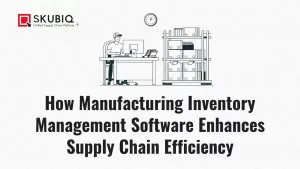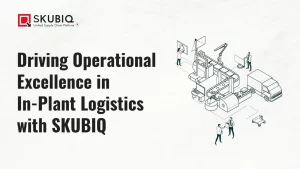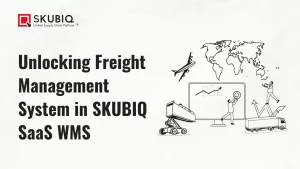In the realm of third party logistics (3PL), efficiency is the name of the game. With the ever-increasing demands of order fulfillment and the complexities of modern supply chains, having a smart warehouse management system is no longer a luxury but a necessity. These systems not only streamline operations but also offer a competitive edge in the market. Here are five strategies to optimize your smart warehouse management system for maximum efficiency and effectiveness.
1. Embrace Automation
Automation lies at the heart of any smart warehouse system. By leveraging technologies such as robotics, AI-powered pick-and-place systems, and automated guided vehicles (AGVs), warehouses can significantly reduce manual errors, increase throughput, and improve overall order fulfillment speed. With the ability to work around the clock without fatigue, automated systems ensure continuous operation, leading to enhanced productivity and customer satisfaction.
2. Implement Real-time Inventory Tracking
Visibility into inventory levels and movements is crucial for effective warehouse management. Utilizing RFID tags, barcode scanners, and sensor technologies, warehouses can achieve real-time tracking of inventory throughout the facility. This not only minimizes the risk of stockouts and overstock situations but also enables better forecasting and decision-making. With accurate inventory data at their fingertips, 3PL providers can optimize storage space utilization and ensure timely replenishment of goods.
3. Optimize Warehouse Layout and Slotting
Efficient warehouse layout design and product slotting are essential for reducing travel time and maximizing storage capacity. By employing slotting optimization algorithms and ABC analysis, warehouses can place high-demand items closer to the packing area, minimizing picking time and labor costs. Additionally, adopting a flexible layout that can adapt to changing demand patterns and seasonal fluctuations ensures scalability and agility in operations. A well-organized warehouse not only enhances operational efficiency but also contributes to a safer working environment for employees.
4. Leverage Data Analytics for Continuous Improvement
Data analytics plays a pivotal role in driving warehouse management excellence. By gathering insights from various sources such as warehouse management software (WMS), IoT sensors, and customer feedback, 3PL providers can identify bottlenecks, predict demand trends, and optimize resource allocation. Advanced analytics techniques like predictive maintenance can also help in preventing equipment breakdowns and minimizing downtime. By continuously monitoring key performance indicators (KPIs) and benchmarking against industry standards, warehouses can embark on a journey of continuous improvement, striving for operational excellence.
5. Focus on Sustainability and Cost Efficiency
In today’s environmentally conscious world, sustainability is no longer just a buzzword but a business imperative. Smart warehouse management systems can play a significant role in reducing carbon footprint and minimizing waste generation. By optimizing transportation routes, adopting energy-efficient technologies, and implementing waste recycling programs, warehouses can contribute to both environmental preservation and cost savings. Moreover, embracing cloud-based WMS solutions and pay-per-use pricing models enables 3PL providers to scale their operations according to demand fluctuations, ensuring cost-effective operations without compromising service quality.
FAQs: Frequently Asked Questions
1. What is a smart warehouse management system?
A smart warehouse management system integrates automation, real-time tracking, and data analytics to optimize warehouse operations. It improves efficiency, accuracy, and cost-effectiveness in inventory management, order picking, and shipping processes.
2. How does it differ from traditional systems?
Smart warehouse systems leverage robotics, AI, and IoT sensors for automation, real-time inventory visibility, and predictive analytics. This leads to faster order fulfillment, fewer errors, and improved decision-making compared to traditional systems.
3. What are the key benefits?
Implementing a smart warehouse management system results in:
- Increased efficiency and productivity through automation
- Improved accuracy in inventory tracking and order fulfillment
- Enhanced real-time visibility into warehouse operations
- Better utilization of space and resources
- Cost savings through reduced labor and operational expenses
4. How can it help 3PL providers?
For third party logistics providers, a smart warehouse management system offers:
- Streamlined processes for handling multiple clients’ inventory
- Enhanced order accuracy and on-time delivery performance
- Improved visibility into inventory levels and movement for better demand forecasting
- Ability to scale operations efficiently to meet fluctuating customer demands
- Competitive advantage by providing advanced warehouse capabilities to clients
5. What factors to consider when selecting?
When choosing a smart warehouse management system, consider:
- Compatibility with existing IT infrastructure
- Scalability to accommodate future growth
- Ease of implementation and user-friendliness
- Integration capabilities with other software
- Vendor reputation and support services
In conclusion, third party logistics (3PL) providers must adopt a holistic approach towards smart warehouse management to stay competitive in today’s dynamic market landscape. By embracing automation, implementing real-time inventory tracking, optimizing warehouse layout, leveraging data analytics, and focusing on sustainability and cost efficiency, 3PL providers can unlock new levels of operational excellence and customer satisfaction. The journey towards a truly smart warehouse management system requires strategic planning, continuous innovation, and a commitment to excellence.



